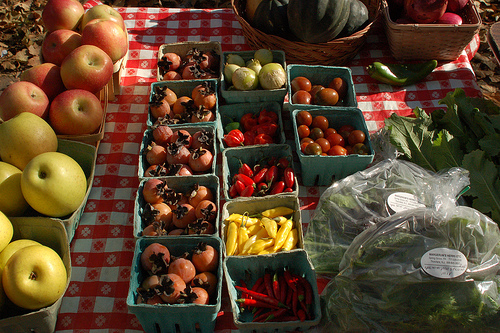
Organic Gardening
Organic gardening is taking the world by storm with millions of people opting for growing and nurturing their own gardens, whether they intend to grow flowers or, more popularly, their own food. Growing your own fruit and vegetables is one of the safest diet options for you and your family, as you’ll always have full control over what you are eating. Further, if you’ve decided to grow an organic garden, you have automatically made the healthiest choice possible, and have put yourself up for some year round fun! Let’s take a look at the most important guidelines for growing your own organic garden.
Test the Soil or Invest in a Greenhouse:
The first thing you need to do is test the soil for fertility and potential. There are several key tests you will need to do:
• Quality and Texture
• Acidity
• Heavy Metals and Harmful Chemicals
If the soil is too sandy, you should use compost or organic topsoil to give it more weight. On the other hand, if the is too much clay in the soil, you can add sand or organic materials to make room for oxygen and water circulation. Checking the acidity levels of the soil is fairly simple – you can purchase a testing kit online or at your local nursery. It is very important to note that different types of plants require different types of soil. Some plants enjoy a more alkaline environment (above 7), while other plants prefer acidic soil (below 7). When it comes to checking for heavy metals and harmful compounds, you are not left with many options. If you are certain that your soil has never been treated with chemicals or pesticides, you can probably assume that it is safe for use. However, the wisest choice would be acquiring professional gardening services from trained and experienced experts, just to stay on the safe side. Let’s move onto to composting and some of the must-haves.
Enriching the Soil:
The easiest and most effective way to fertilize the soil for your specific needs is to add compost to it. Invest in a compost bin that you can keep in a cabinet or your greenhouse. Simply adding compost materials to the soil prior to planting will make it rich and fertile. Compost is made out of materials you would normally throw out, and you can easily make some yourself from:
• eggshells
• grass clippings
• fruit and vegetable peels and cores
• coffee grounds
• unbleached shredded paper
• leaves
• pet or human hair
• other garden waste
Be sure to avoid adding bone pieces or other material that will attract vermin. There are also other options for enriching the soil like earthworm castings, peat moss, decaying mulch and manure. Bear in mind that manure is a great fertilizer but it has to be aged at least six months before use. You can buy aged manure at a local nursery or farm, just remember to ask if it has aged properly beforehand.
Important Notes and Must-Haves for Gardening:
Growing your own organic garden comes with many pleasures and quite a few responsibilities. It is important to always keep your garden in perfect condition year-round, as well as look after all garden structures, no matter the season. You can attend to this task yourself or hire professionals to take care of your garden for you. Always try to recycle as much as possible. Recycling can be often be made easier by using a backpack leaf blower to collect all of the leaves that naturally comes from gardening. Trust us, you will be amazed when you see how many garden elements can be reused.
Faded flowers can be used for composting, shredded prunings for mulch or seeds for next year. Old crops should be recycled whenever possible. Keep in mind that seasonal gardening attracts seasonal wildlife, so make sure to keep an eye out for new frogs, birds, and other creatures in order to cater and nurture them. Remember to equip your garden with a compost bin, use organic pesticides and avoid overwatering the plants.
We’d also advise getting a portable backpack leaf blower. These come in handy for tidying up any leaves that blow around and cause a mess. Helpful Habitat’s done the work for you on this front.
Make sure to pay special attention to light. Sunlight is essential for helping specific plants thrive, but bear in mind that different plants require different amounts of sunlight. If you are feeling overwhelmed with information, remember you can always seek professional assistance or start off with less demanding, household plants until you feel confident enough to move onto more demanding ones. Whether you’re starting a vegetable, flower or wildlife garden, these essential guidelines will prove imperative in creating the garden you always dreamed about.
For Garden Maintenance, click photo:
 WhosGreenOnline.com Your Online Magazine and Directory for Green Business, Product, Service and News!
WhosGreenOnline.com Your Online Magazine and Directory for Green Business, Product, Service and News!


